Chinese activist Zhai Yanmin found guilty of subversion
- Published
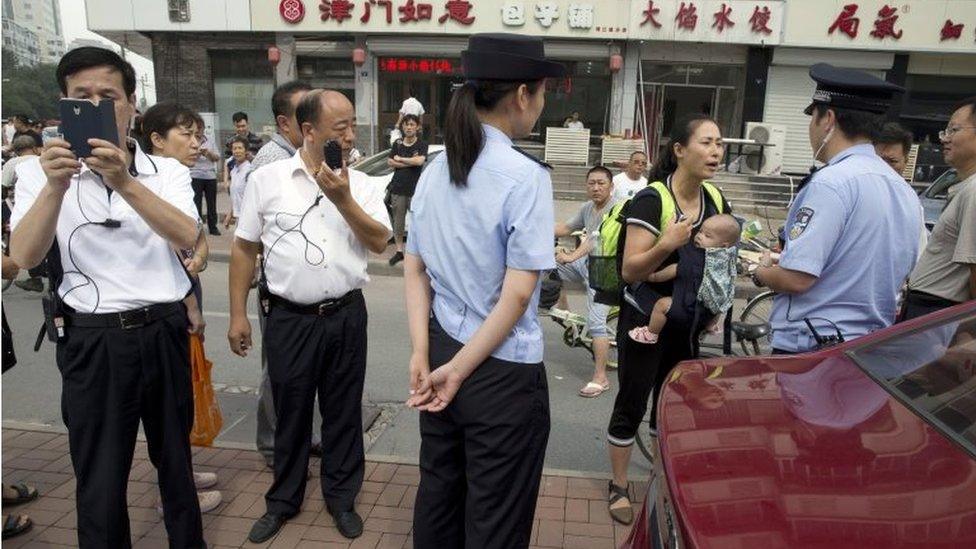
Plain-clothed police were filming journalists outside the court as they spoke to the wife of one of the detained lawyers
Chinese rights activist Zhai Yanmin has been found guilty of subverting state power after a one-day trial in Tianjin.
Zhai was among 300 lawyers and activists arrested since July last year as part of a crackdown on legal activism - about 20 are still detained.
In the first trial since the crackdown, he was given a three-year suspended prison sentence.
The cases have provoked international criticism and accusations they are politically motivated.
Three other activists are also facing trial in Tianjin.
Zhai's law firm, Fengrui, specialises in human rights cases
On Monday, another prominent Fengrui lawyer Wang Yu was apparently released on bail, after a video appeared in which she renounced her legal work.
But it was not clear when the video was filmed, nor whether Ms Wang was now free.

At-the-scene: John Sudworth, BBC Beijing
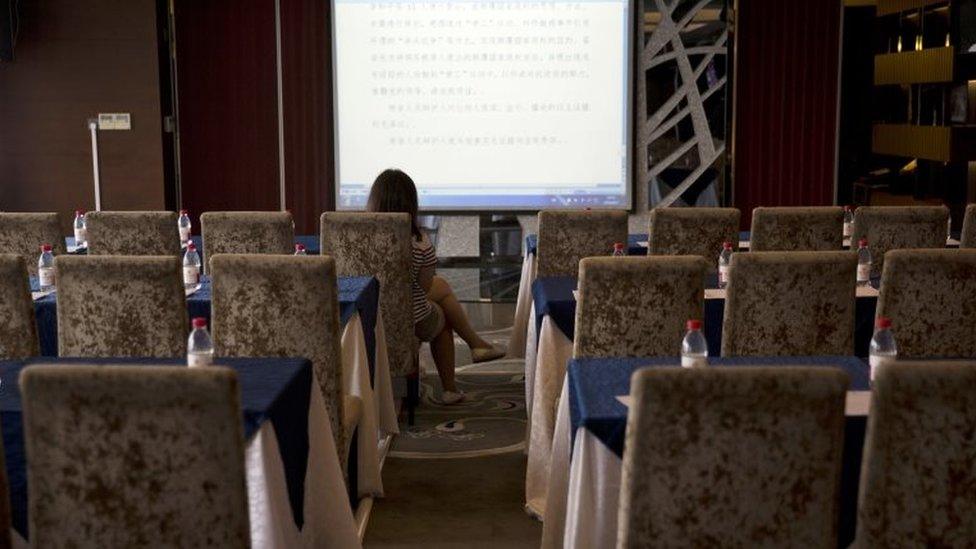
China had said the trial would be open to observers but the BBC was prevented from filming outside
China calls this trial "open" and says a number of journalists have been "invited" into court to cover it. The BBC's invitation must have got lost somewhere.
Very shortly after arriving outside the court in Tianjin we were stopped from filming by plain clothes policemen, had our identities checked and were then guided onto a bus and taken to a nearby hotel.
In an upstairs room, projected onto a screen was a "live transcript" from the trial. Like the lawyers and family members who have been denied access to this group of defendants for over a year, there is no way to independently assess the strength of the evidence against them, or the authenticity of their professed "guilt".
The thin veneer of openness is a sign that China well understands that the international community is watching these trials.
But it will only add to the suspicion that they are politically motivated with the primary purpose of sending a very chilling message to anyone who dares to test the authority of the Communist Party, in or out of court.

Chinese state media said the court had taken three hours to reach its verdict against Zhai, whose activism began with the Tiananmen Square protests in 1989.
China Daily said he had posted comments online that harmed national security and social stability, and organised protests to disturb the public order.
The Xinhua state news agency described Zhai as a paid protester and "an unemployed resident of Beijing".
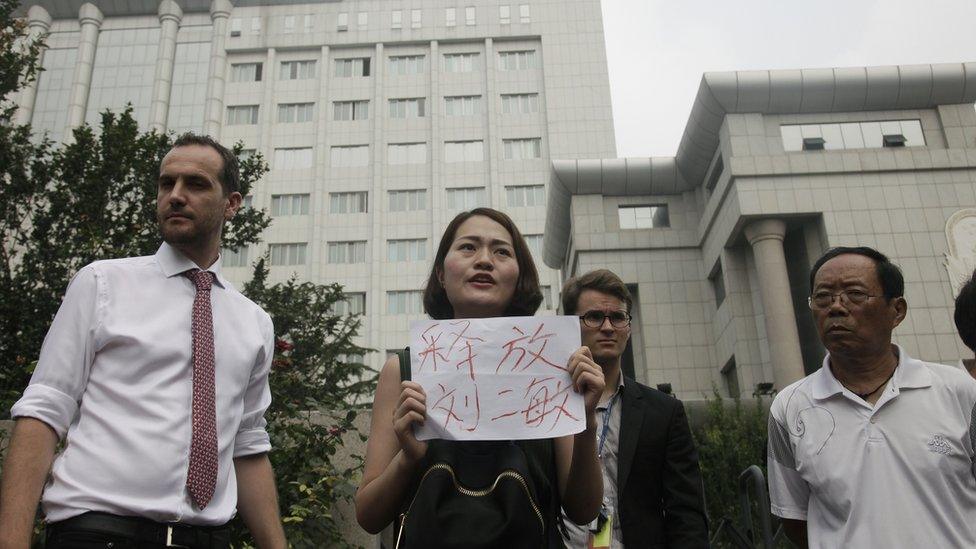
Families and supporters of those on trial called it "ridiculous and evil"
The suspended sentence means he will not go to jail, but will be heavily supervised and unable to be involved in any political activities.
'Ridiculous and evil'
The detained lawyers are widely known as "709" - a reference to the date the crackdown was launched on 9 July 2015.
The families of some of those arrested said in a statement on Monday that the trial was "ridiculous and evil", and appealed for the trial to be given international attention.
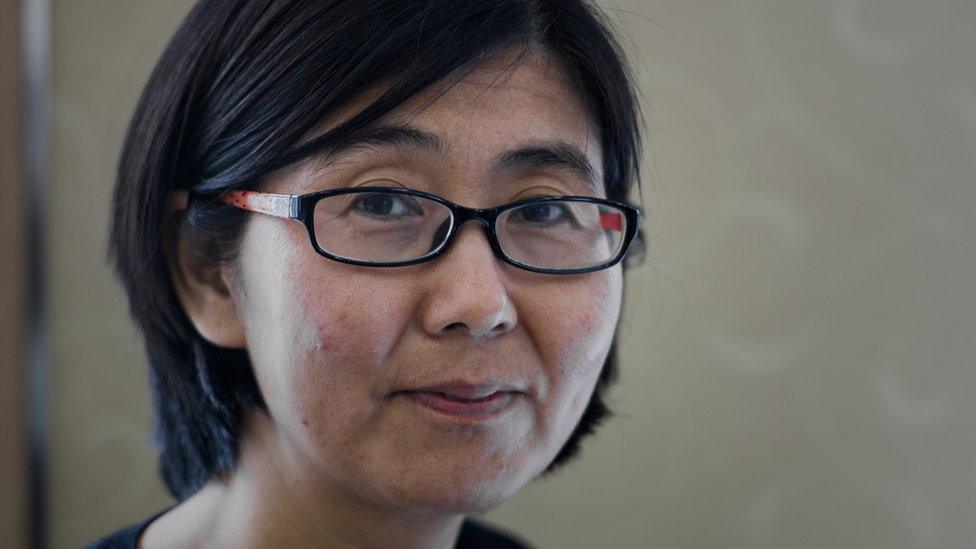
Wang Yu appeared in a video denouncing Mr Zhou as an unqualified lawyer
The statement also alleged that the wife of Zhai was missing, with others facing the risk of being "taken away".
The family members said they were not allowed to attend the trial.
China's crackdown last year targeted the country's small human rights advocacy movement, and involved lawyers tackling cases to do with freedom of speech, religion or abuses of power.
Most of the arrested activists were released but observers say China is taking a strong line against those still in detention.
In a video of Wang Yu which was released on Monday, she denounced the head of Fengrui, Zhou Shifeng, as an unqualified lawyer.
She added that "foreign forces" were using the firm to undermine and discredit the government.
Observers said there were indications the "confession" was coerced. In recent months forced public confessions have been used in several cases in China.
- Published2 August 2016
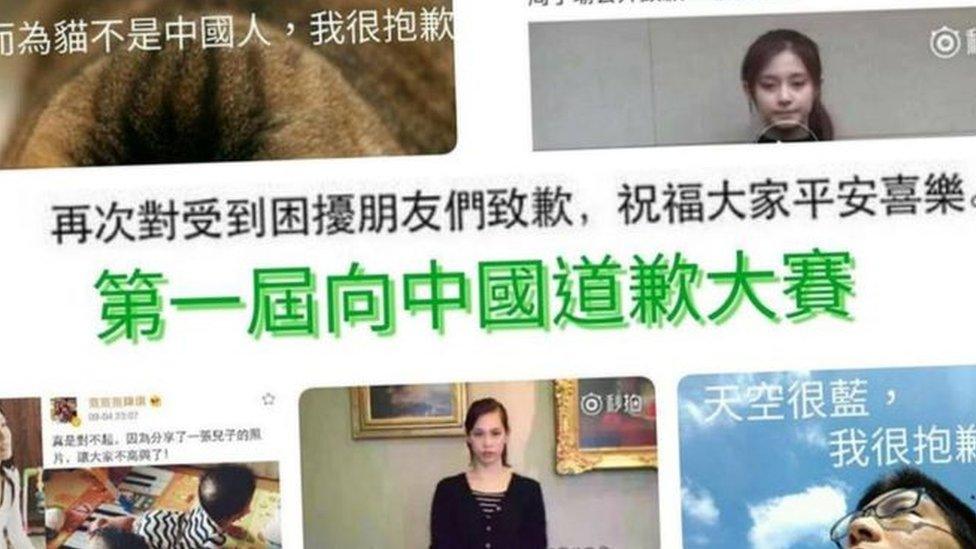
- Published4 July 2016
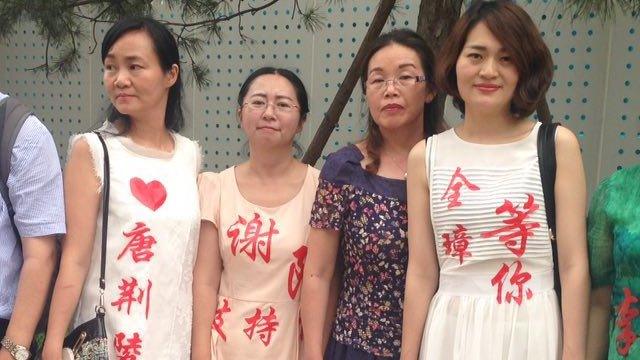
- Published12 January 2016
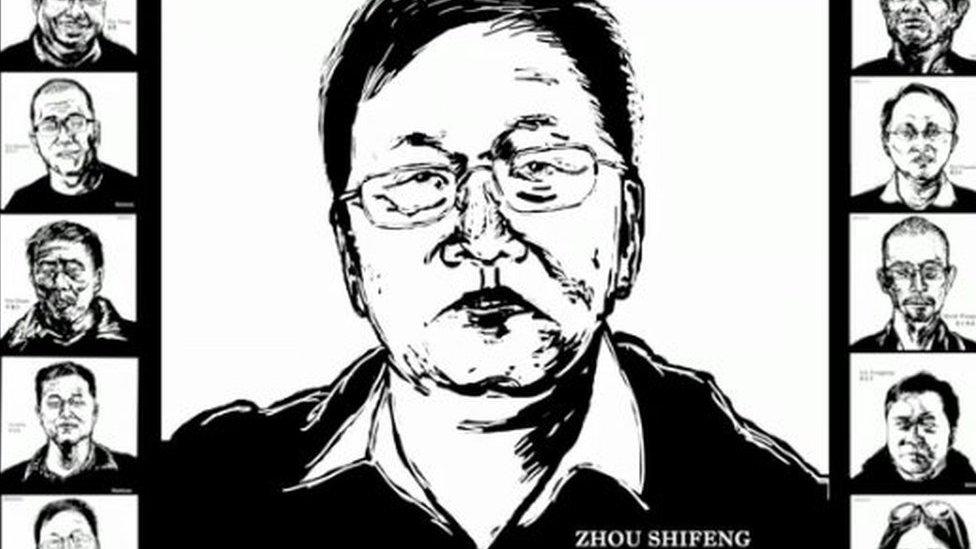
- Published13 July 2015